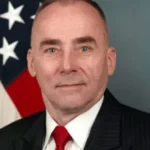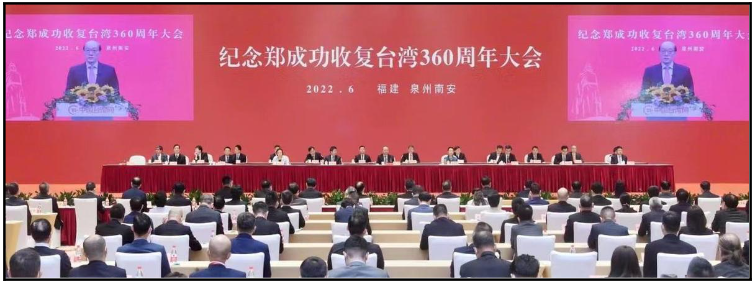Taiwan grew and prospered since 1979 within the open, rules-based, market-oriented international order developed by the United States and allies in the wake of World War II. This global order and the US alliance systems provided a security shell protecting political and economic growth. As a result, Taiwan became a robust, vibrant, prosperous democracy. Yet, Taiwan may now be concerned about apparent shifts in US leadership of the global order and the endurance of the American alliance systems.
At this unsettling moment comes an intriguing change of title for the US Unified Command that covers not only Taiwan but most of the world. What is in this new title? And what is Taiwan to take from this ripple in the political-military environment? “INDOPACOM” came to the public notice with speeches by Secretary of Defense James Mattis. Secretary Mattis has many roles in the Trump administration, including resident intellectual, statesman, and sound strategist. He is often the Secretary of Reassurance. In this era of endless, often salacious, news and commentary on governance, Secretary Mattis’ infrequent formal public policy statements command outsized attention. So it is with this introduction of INDOPACOM to American official language.
At one level it is acknowledgement that the Department of Defense, and therefore the Executive Branch, recognizes the will of the people as expressed through their elected representatives. Our 2019 defense bill includes several provisions, certainly not before time, to counter Chinese influence in the maritime theater from the east coast of Africa to the west coast of the United States, and from Japan through the first and second island chains to Australia. Japan coined the “Quad” concept years ago—Japan, Australia, India, United States—to highlight the vital common interests of the major maritime democracies. “INDOPACOM” expresses a very similar and complementary concept.
Making the Legislature’s intent clear, the defense bill’s summary emphasizes funding to provide the necessary forces and military infrastructure, and logistics capabilities in the region through the Indo-Pacific Stability Initiative. The bill also calls for enhanced maritime security and maritime domain awareness in the South China Sea and Indian Ocean. INDOPACOM terminology is the Department of Defense telling Congress that their message was received and we are acting on it. But there is much more here.
In June, at the annual Shangri-La Dialogue with Asian defense officials, Secretary Mattis expanded the Indo-Pacific vision. With our allies and other partners, we seek a region where sovereignty and territorial integrity are safeguarded, the promise of freedom is fulfilled, and prosperity prevails. No one nation should dominate, and shared responsibility is needed. These are foundational vital interests of all the maritime democracies and friends in the INDOPACOM area, including—importantly—Taiwan. All are welcome. The role of the Association of South East Asian Nations, their member states, and that of the “Quad” envisioned by Prime Minister Abe, are equally essential.
Several lines of effort involving all elements of our national power and that of our allies and friends will give substance to this initiative. Again, from Secretary Mattis:
- Expanding attention and action in the maritime space. “The maritime commons is a global good, and the sea lanes of communication are the arteries of economic vitality for all.”
- We will help our partners to build up naval and law enforcement capabilities and capacities to improve monitoring and protection of maritime borders and interests.
- Interoperability, understood to mean the ability to integrate the efforts of our militaries, law enforcement, and our economies, must improve to better support common goals.
- The rule of law, civil society, and transparent governance will “be the sunlight that exposes the malign influence that threatens sustainable economic development.”
- Private sector-led development requires improved financial institutions.
- US agencies must work more closely with regional economic partners.
At stake is the future of the global order created after the devastation of the global wars of the early 20th Century. The carnage of those world wars was the sorry product of an old global order of empires, authoritarianism, blood-and-soil nationalism, might-making-right coercion, colonialism, and protectionism that brought near-total war and, with the United States notably excepted, near-total devastation. In response, the United States led the effort to create a new order out of WWII’s ruins to break the cycle of great-power conflicts.
This new order—the current order—is open and rules-based, built around open markets, security alliances, multilateral cooperation, and democratic community. This order, sometimes called Pax Americana or, more pejoratively, American Hegemony, prevented yet another great power conflict and brought the Cold War to a peaceful end.
The creation and imposition of this new order was powerful diplomacy employing US strength and will. Military muscle and might was integral, but not the purpose or sole instrument. Early in the Cold War, American credibility was challenged by the Soviet ground blockade of West Berlin. Threatened with starvation, the citizens of free West Berlin were supported by a massive, enduring US airlift of food, water, fuel, building materials, even candy for the kids and, most importantly, continuous tangible demonstration with every landing and takeoff of US and Western determination that the old might-makes-right rules stopped there. In a little over a year from the end of the Soviet blockade the United States was in action on the Korean Peninsula to prevent the destruction of the newly-formed Republic of Korea, and to avoid a precedent with obvious dire implications for Europe. We recognized that peace and freedom are not a given, and that actions in separate theaters are strongly connected.
The economic component of the new order proved decisive. The Cold War ended without yet another great-power conflict. No command economy, or colonial system, then or now, can match the dynamism of free societies, free trade, and capitalism. This order drove the rapid growth of American wealth, power and prosperity, and that of American allies and partners. Under this system, Taiwan and the Republic of Korea transitioned from autocracy to vibrant, vigorous, prosperous democracies.
Many now question the future of this American-led postwar order given challenges from China, Russia, and other revisionists who wish to replace it with something much more congenial to authoritarian and totalitarian rulers. Many question America’s current commitment. It will come as no surprise to Taiwan that the last two decades of stagnant real incomes and exceptionally low labor force participation rates in the US created a loss of confidence in government and political institutions. A large part of the electorate is convinced they were abandoned by our political leadership. The response is as powerful as it was unexpected, and it has consequences. “America First,” rejection of international agreements, disparagement of allies and friends while complimenting autocratic leaders, raise fears of a US turn to isolation.
America made this turn before, most recently after the Vietnam War, most devastatingly in the Depression. But the United States always returned to base course; history argues that the United States will again. At least 13 previous presidents supported and fought hard to strengthen and expand the US-led open and rule-based global order: seven Democrats and six Republicans. President Reagan, assuming office after the United States most recent inward turn, knew the moral leadership and power of his office, and he employed American “Soft Power” often in support of the global order. His invocation of John Winthrop’s ‘Shining City on a Hill’, his Human Rights Day speech, his “Mr. Gorbachev, tear down this wall” command, and his “hard power” exertions were robust, full-throated, and successful. As a nation, American spoke to captive populations of the world through words and deeds, spreading democracy and prosperity, and making life miserable for autocrats. President Reagan strengthened the protective shield for West Berlin’s security and for all of America’s friends and allies until the wall was, indeed, torn down by popular will.
Yet, uncertain trumpeting from the United States these days makes action by Taiwan even more important. Taiwan can sustain its strong engagement with the US while enhancing engagement with many like-minded friends in the “INDOPACOM” region. Japan’s political and economic diplomacy is very active and supportive. Australia, India, and others have common interests with Taiwan, and they can benefit from Taiwan’s deployment of soft-power initiatives—specifically including its example as a robust, vigorous, and prosperous democracy—on a range of common interests. The “global order” that the INDOPACOM term supports is not the exclusive property of the United States, or any other single country.
No analogies are perfect, but the story of West Berlin holds lessons for Taiwan and for the other maritime democracies, large and otherwise, of Asia; and for the United States. Washington needs to bring all stakeholders of a free and open Indo-Pacific together, as indicated in Secretary Mattis’ careful words at the Shangri-La Dialogue, in celebration and exploitation of their shared strengths. The United States needs to expand the economic, political, legal, military, diplomatic and persuasive powers of the secure, free and open global order for the benefit of all.
The main point: Uncertain trumpeting from the United States these days makes action by Taiwan even more important. Taiwan can sustain its strong engagement with the US while enhancing engagement with many like-minded friends in the “INDOPACOM” region.



